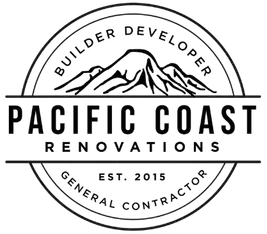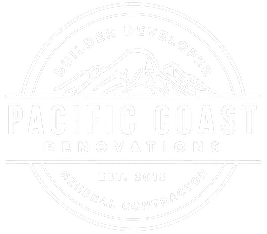Demolition is the first step in any major renovation project, but it’s not a task that should be taken lightly. It requires careful planning and execution to ensure the safety of your property and the people involved. In this blog post, we’ll discuss some safe and eco-friendly strategies for demolition that will help you kick-start your renovation project on the right foot. Don’t forget to contact Pacific Coast Renovations for all your renovation needs!
Planning and Preparing for Demolition
Before commencing with any demolition work, it’s crucial to have a well-thought-out plan in place. This includes:
– Obtaining necessary permits and ensuring compliance with local building codes and regulations.
– Determining the scope of the demolition project and mapping out a detailed timeline.
– Conducting a thorough inspection of the project site to identify potential hazards, such as gas lines, electrical wires, and asbestos-containing materials.
– Developing a safety plan that incorporates personal protective equipment (PPE) and emergency procedures.
Choosing the Right Demolition Method
There are several techniques available for demolition, and choosing the most appropriate method depends on the nature of your project. Some common demolition methods include:
– Manual demolition using hand tools, such as sledgehammers and crowbars. This method is most suitable for smaller projects, like interior demolition or partial renovations.
– Mechanical demolition using heavy equipment, like excavators and bulldozers. This is ideal for larger projects that involve the complete removal of a structure.
– Controlled implosions using explosives, which is typically reserved for large-scale commercial and industrial demolitions.
– Deconstruction, which involves dismantling a building piece by piece in order to salvage materials for reuse or recycling.
Prioritizing Safety during Demolition
Safety should always be the top priority during any demolition project. Keep the following safety tips in mind:
– Ensure all personnel are wearing appropriate PPE, including hard hats, safety goggles, and steel-toed boots.
– Establish a safety perimeter around the demolition area to keep unauthorized personnel and bystanders away from the site.
– Clearly mark and isolate any utilities, such as gas lines or electrical wires, to prevent accidents.
– Have a designated safety officer on-site to oversee the demolition process and ensure all safety protocols are being followed.
Embracing Eco-Friendly Demolition Practices
Incorporating eco-friendly practices into your demolition project can save you money, protect the environment, and contribute to a more sustainable future. Some green demolition strategies include:
– Salvaging and recycling building materials, such as wood, metal, and concrete.
– Donating reusable fixtures and appliances to local charities, like Habitat for Humanity.
– Utilizing energy-efficient machinery and equipment during the demolition process.
– Choosing a deconstruction method instead of traditional demolition when possible, as this allows for more materials to be salvaged and reused.
Demolition is an essential part of any renovation project, but it must be done safely and responsibly. By following the tips and strategies outlined in this blog post, you can ensure that your demolition project is not only safe but also eco-friendly. For professional assistance with your demolition and renovation needs, don’t hesitate to contact Pacific Coast Renovations today!

